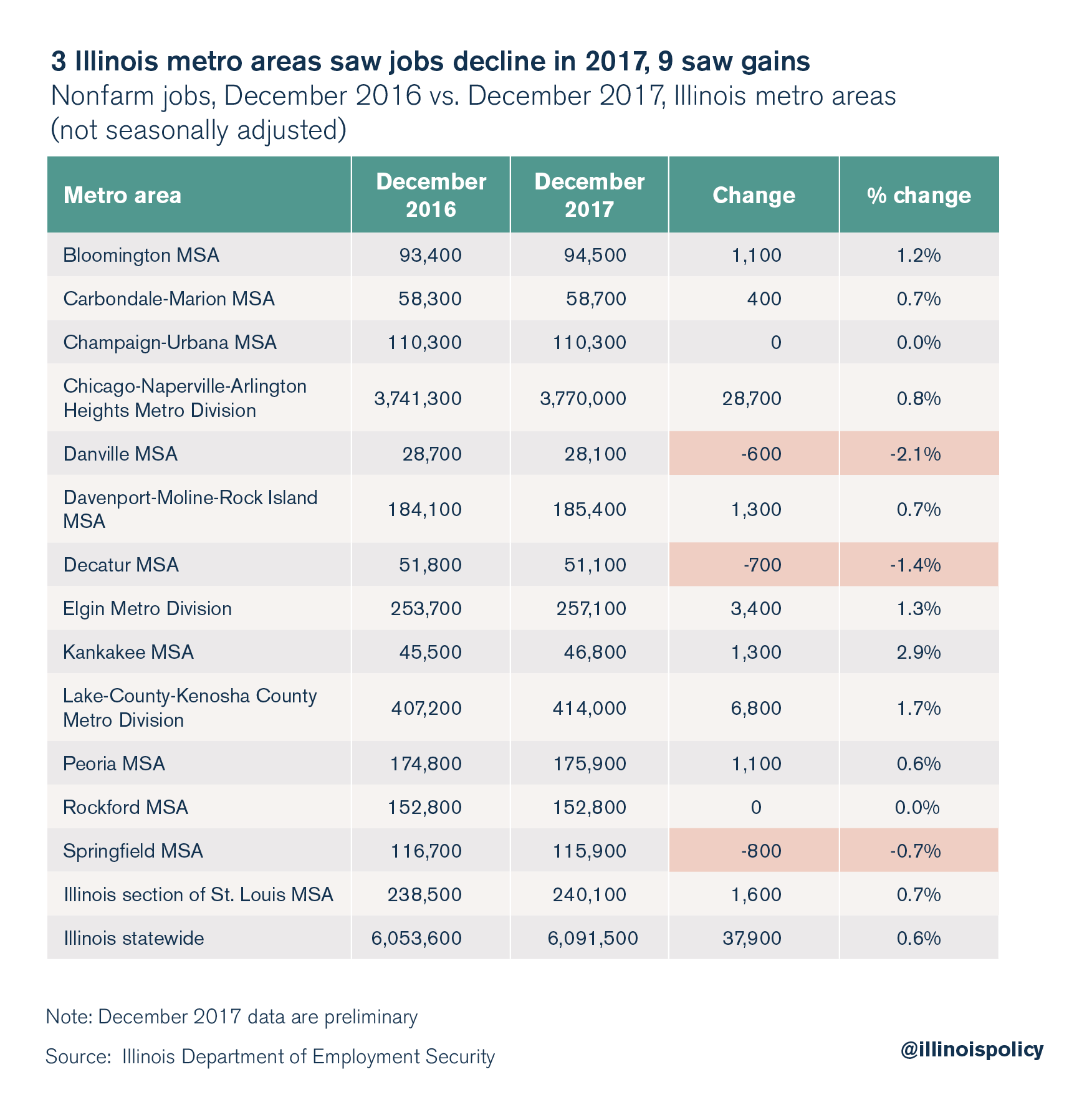3 Illinois metros saw jobs loss, most saw labor force decline in 2017
New state data shed a light on weak economic growth in metro areas across Illinois.
Illinois businesses shed jobs in three metro areas over the year, according to a Jan. 25 data release from the Illinois Department of Employment Security. And workforce dropout is prevalent throughout the state.
Jobs losses came in Danville (down 2.1 percent, losing 600 jobs), Decatur (down 1.4 percent, losing 700 jobs), and Springfield (down 0.7 percent, losing 800 jobs). Two metro areas, Champaign-Urbana and Rockford, saw stagnant employment with no change over the year.
Meanwhile, nonfarm jobs increased in nine metro areas from December 2016 to December 2017, with the largest increases in Kankakee (up 2.9 percent, adding 1,300 jobs) and Lake-Kenosha (up 1.7 percent, adding 6,800). The Chicago-Naperville-Arlington Heights Metro Division saw the largest jobs growth in raw terms, adding 28,700 new jobs, an increase of 0.8 percent. Despite over-the-year employment gains in most metropolitan areas and declining unemployment rates across the state, most places are experiencing a decline in the labor force. Indeed, without Chicago-area gains, the state would have added only 9,200 jobs over the year, instead of adding 37,900.
Despite over-the-year employment gains in most metropolitan areas and declining unemployment rates across the state, most places are experiencing a decline in the labor force. Indeed, without Chicago-area gains, the state would have added only 9,200 jobs over the year, instead of adding 37,900.
Unemployment rates declined in all metro areas and 102 Illinois counties over the year, but most of this change stemmed from decreases in labor force participation. Analysis of Bureau of Labor Statistics data reveal Chicago-Naperville-Arlington Heights, Kankakee and Lake-Kenosha (which includes Wisconsin’s Kenosha County) were the only metro areas to see a drop in the unemployment rate primarily due to employment gains. The rest of the state experienced dips in the unemployment rate because of a decrease in the number of job seekers.
With this in mind, lawmakers should look toward policies that foster a healthy, fair business climate across industries and across the state. Illinois needs to see decreasing unemployment rates that stem from more residents being able to find a job, not because they are so fed up with not being able to find work that they stop looking.
Given businesses with fewer than 50 employees created 75 percent of Illinois’ net new jobs in 2016, state lawmakers should pay particular attention to making the state friendlier for entrepreneurs.
Pro-growth policies do not include making small business owners pay some of the highest property taxes in the nation, the highest workers’ compensation costs in the region or raising the overall tax burden to fix Springfield’s spending problems.
State lawmakers should seek fixes to all of these pain points.

